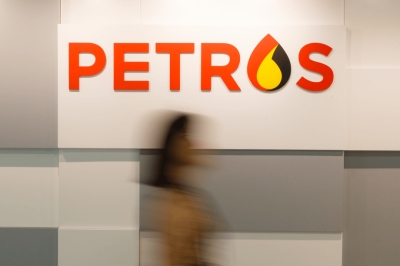MARCH 14 — At the heart of Malaysia’s energy landscape lies a debate that transcends pipelines and profits. The ongoing discussion between Petronas (Petroliam Nasional Berhad) and Petros (Petroleum Sarawak Bhd) reflects not just a struggle over oil and gas resources but also a deeper conversation about national unity, state rights, and shared prosperity. This is a story rooted in history — of how Malaysia reclaimed its natural wealth from foreign dominance, built one of the world’s most respected energy companies, and now grapples with balancing federal authority with state aspirations.
A legacy born out of struggle
In 1974, amidst rising global oil prices and concerns over resource control, Malaysia took a bold step by enacting the Petroleum Development Act (PDA). This landmark legislation placed all oil and gas resources under federal jurisdiction, empowering Petronas to act as the custodian of the nation’s hydrocarbon wealth. Established with an initial capital of RM10 million, Petronas began as a modest enterprise tasked with consolidating Malaysia’s fragmented oil industry under national control. As a commercial entity, it was structured to be accountable primarily to the Prime Minister, followed by its Board of Directors and the National Petroleum Advisory Council.
Abdul Razak, Malaysia’s second prime minister, entrusted this formidable responsibility to Tengku Razaleigh Hamzah, appointing him as the founding chairman and CEO. Razaleigh faced immense challenges, particularly in negotiating oil royalties and revenue-sharing agreements between the federal government and the states. While Sabah and Perak engaged in protracted discussions, Sarawak’s chief minister (1981-87), Rahman Yaakub — the uncle of Taib Mahmud — proved surprisingly accommodating to federal arrangements, a decision that significantly shaped the early trajectory of Petronas’ role in Malaysia’s energy governance. Meanwhile, Taib Mahmud, then the minister of primary industry, established Hidrokarbon Malaysia (Hikma), a precursor to Petronas, further laying the groundwork for centralized resource management.
Negotiations with foreign oil giants like Shell, Exxon, and Conoco were fraught with tension. These companies had long benefited from exclusive exploration and drilling rights in Malaysia through earlier concession agreements — rights that dated back to 1909 when Rajah Brooke granted the concession for free to Sir Marcus Samuel, one of the founders of “Shell” Transport and Trading Company (later known as Shell). However, the establishment of Petronas under the Petroleum Development Act in 1974 disrupted this arrangement, as Petronas sought to reclaim national control over Malaysia’s oil wealth. This shift sparked resistance from these firms, which viewed the rise of the national oil company as a direct threat to their profits and dominance in the industry.
Foreign oil giants dismissed the fledgling company, dubbing its negotiators “kindergarteners” due to their limited technical expertise. Yet, through sheer determination, clever negotiation tactics, and a steadfast commitment to economic nationalism, Petronas earned respect on the international stage. By November 1976, it had struck agreements with major players like Shell and Exxon, paving the way for Malaysia’s rise as a sovereign energy power.
But behind this success was more than just business acumen; it was a shared vision among Malaysians who believed in economic independence. From Tengku Razaleigh’s unyielding leadership to the tireless efforts of pioneers like Abdul Kadir Shamsuddin, Raja Tun Mohar Raja Badiozaman, and Rastam Hadi as well as the technical teams dubbed the “Young Turks,” Petronas became a symbol of what Malaysia could achieve when united by purpose.
A file photograph shows the Petros at one of its offices. — The Borneo Post pic
Sarawak’s call for autonomy
Today the narrative has evolved. While Petronas stands as a pillar of Malaysia’s economy — contributing billions annually to the federal budget — questions have arisen about equity and distribution. For decades, Sarawak has argued that centralised control has left the state economically disadvantaged. Despite its rich hydrocarbon reserves, Sarawak argues that its contributions have been undervalued, with revenues flowing disproportionately to the federal government. Grounded in the Malaysia Agreement 1963 (MA63), which guarantees certain rights to Sarawak and Sabah, Sarawak has renewed calls for greater autonomy over its natural resources. The establishment of Petros aims to address these historical grievances, ensure fairer wealth distribution, and empower Sarawakians to manage their own energy future.
Understanding how Petronas emerged from Malaysia’s fight against foreign monopolies highlights the importance of protecting national interests. At the same time, acknowledging Sarawak’s grievances underscores the need for inclusive governance. How do we ensure that Malaysia’s natural resources benefit all Malaysians? How do we honour the spirit of MA63 while safeguarding national cohesion? And how do we build a future where every state feels valued and empowered? How the Petronas-Petros saga unfolds will shape not only the future of Malaysia’s energy sector but also the fabric of federal-state relations. Can Petronas continue to serve as a unifying force while addressing regional disparities? Or must new frameworks emerge to reflect changing dynamics?
* Shakila Yacob, a professor at the Jeffrey Cheah Institute on Southeast Asia, Sunway University, authored “Petronas, Oil Money, and Malaysia’s National Sovereignty” in the Journal of the Malaysian Branch of the Royal Asiatic Society (JMBRAS), 2021.
** This is the personal opinion of the writer or publication and does not necessarily represent the views of Malay Mail.





